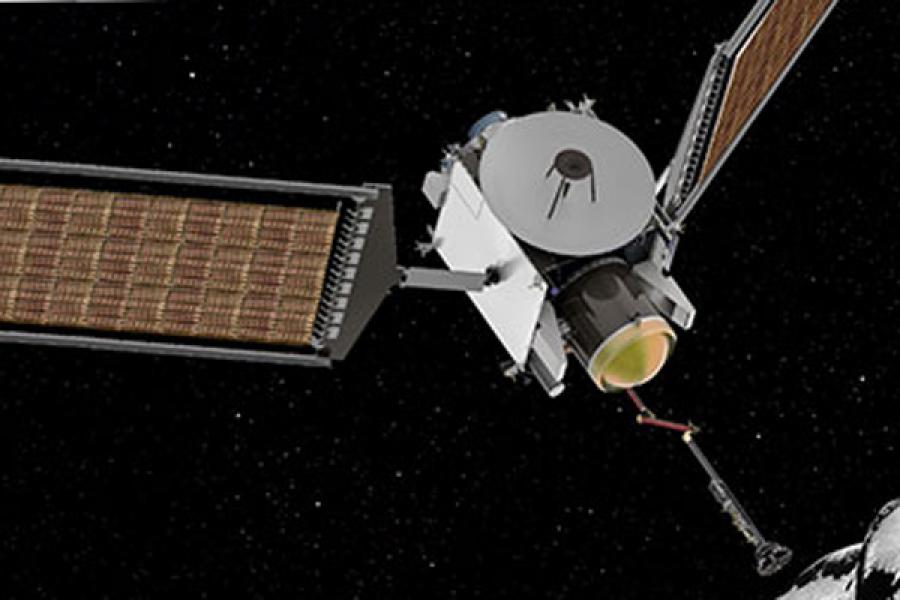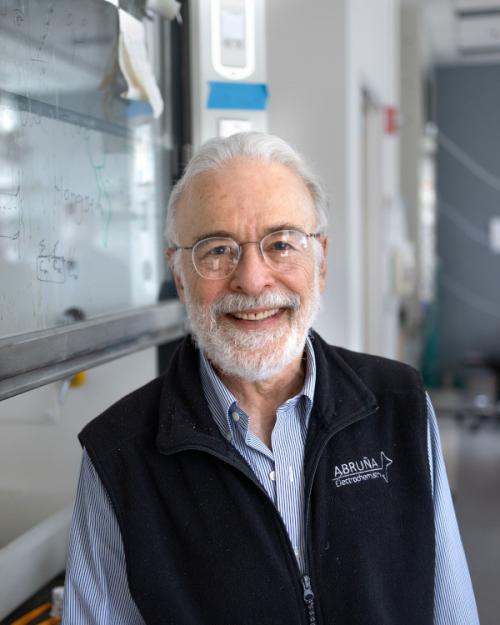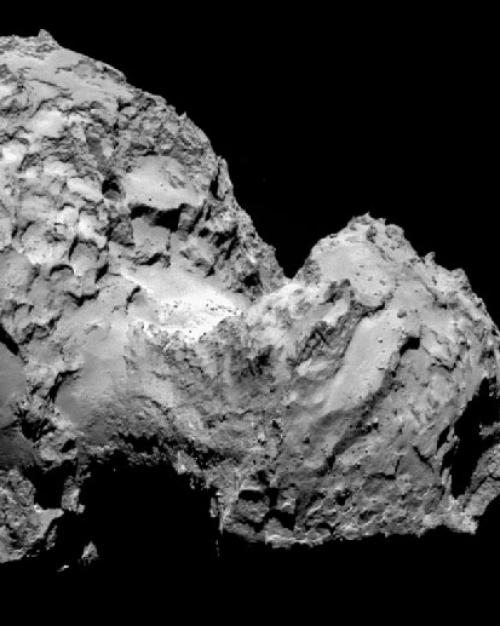Cornell astronomers’ exploration of the solar system just got a major boost: Two faculty members will play critical roles in one of the two final concepts that NASA has selected for a robotic mission planned to launch in the mid-2020s under its New Frontiers Program. Steven Squyres, the James A. Weeks Professor of Physical Sciences in Cornell’s Department of Astronomy, will lead the Comet Astrobiology Exploration Sample Return (CAESAR), a comet sample return mission, as principal investigator; Alex Hayes, assistant professor of astronomy, will serve as payload lead.
NASA announced the finalists Dec. 20, following a competitive peer review process of 12 proposals submitted in April.
The CAESAR mission seeks to retrieve and return a sample from 67P/Churyumov-Gerasimenko, a comet that was successfully explored by the European Space Agency’s Rosetta spacecraft, to determine its origin and history. CAESAR would be managed by NASA’s Goddard Space Flight Center in Greenbelt, Maryland.
Artist's rendering of the CAESAR (Comet Astrobiology Exploration SAmple Return) mission. Credit: NASA
If selected, CAESAR will “produce groundbreaking science for decades to come,” said Squyres, who serves as principal investigator for the Mars Exploration Rovers Spirit and Opportunity. “The end date of the flight will really be the beginning. The science will extend for decades after the sample comes back.”
CAESAR and the second finalist, Dragonfly, will receive funding through the end of 2018 to further develop their concepts. NASA plans to select one of these investigations in the spring of 2019 to continue on to subsequent mission phases.
The selected mission will be the fourth NASA New Frontiers project, a series of principal investigator-led planetary science investigations that fall under a development cost cap of approximately $850 million. Its predecessors are the New Horizons mission to Pluto and a Kuiper Belt object, the Juno mission to Jupiter and OSIRIS-REx, which will rendezvous with and return a sample of the asteroid Bennu.





